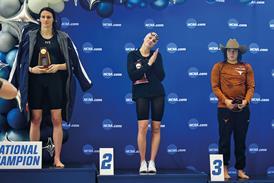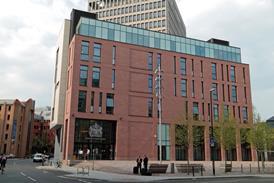Five Supreme Court justices today unanimously rejected an attempt by newspapers to overturn a landmark court ruling on the 'serious harm' test for libel introduced by the Defamation Act 2013. Defamation specialists said the ruling correlates with a rise in the number of claims following a dip when the act came into force.
In Lachaux v Independent Print Ltd and another, a French resident of the United Arab Emirates brought a libel action against the publishers of the Independent and Evening Standard over articles about his behaviour in a child custody dispute.
The newspapers argued that the articles were not defamatory because they did not meet the 'serious harm' threshold under Section 1 of the 2013 act. However in the first significant ruling on the test, Mr Justice Warby, presiding judge of the media and communications list, ruled that the articles did serious harm. The Court of Appeal dismissed the newspapers' appeal, finding that the words complained of had an inherent tendency to damage the complainant's reputation.
Dismissing the latest appeal, the Supreme Court returns to Warby J's approach. In lead judgment, Lord Sumption finds no error in Warby J's serious harm finding which he states was properly based on a combination of the meaning of the words, the complainant's situation, the circumstances of publication and the inherent probabilities.
Lord Kerr, Lord Wilson, Lord Hodge and Lord Briggs agreed.
Claire Gill, partner at defamation specialist Carter-Ruck Solicitors, said: 'Although the Independent and Evening Standard lost the appeal on the facts and evidence in this case, newspaper groups are likely to be pleased with the findings, as it is clear that s1 Defamation Act 2013 does introduce a new threshold of seriousness which did not previously exist.'
Analysis by Carter-Ruck showed that, in 2016, the High Court received only 112 defamation claims, down from 227 in 2014. In 2017, however, numbers recovered to 156 and to 256 in 2018 - a 70% increase on the year.
Rory Lynch, reputation and specialist at London firm Vardags agreed that the outcome would raise the evidentiary bar for those wishing to bring a defamation claim. 'When deciding whether a publication has caused “serious harm” to a claimant’s reputation the court will look at more than just the meaning of the words complained of, but at the actual deleterious impact the publication has had on that particular claimant, thereby placing a greater evidentiary burden on would-be claimants.'
David Price QC and Jonathan Price, instructed by David Price, solicitor advocate, appeared for the appellants; Adrienne Page QC and Godwin Busuttil, instructed by Taylor Hampton, for the respondent. Guy Vassall-Adams QC and Romana Canneti and Edward Craven made written submissions for the Media Lawyers Association, which intervened in the case.

















![David Lester (senior partner at Blythe Liggins), Darryl Barnes, Jagdeep Sandher (head of dispute resolution at Blythe Liggins)[4]](https://d1d8vslyhr7rdg.cloudfront.net/Pictures/274x183/4/2/8/116428_davidlesterseniorpartneratblytheligginsdarrylbarnesjagdeepsandherheadofdisputeresolutionatblytheliggins4_981603_crop.jpg)






2 Readers' comments